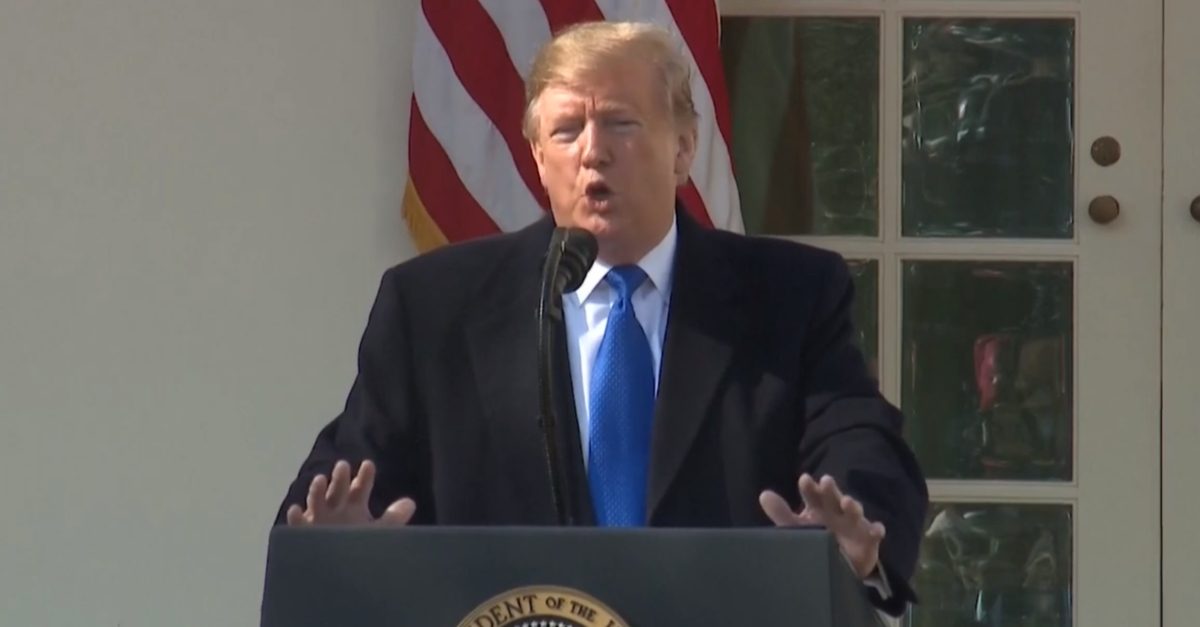
Upon arriving for his state visit in the United Kingdom, U.S. President Donald Trump took to Twitter to criticize CNN for unfavorable coverage of his administration.
After belittling London Mayor Sadiq Khan as “nasty” and a “loser,”in his first tweets of the day, President Trump set his sights on the American news organization, complaining about its negative coverage of his administration and urged parent company AT&T to “do something” about CNN’s unfair reporting, tweeting: “Just arrived in the United Kingdom. The only problem is that @CNN is the primary source of news available from the U.S. After watching it for a short while, I turned it off. All negative & so much Fake News, very bad for U.S. Big ratings drop. Why doesn’t owner @ATT do something?”
Just minutes later, Trump called for AT&T customers to boycott the telecommunications company, plainly as a means of affecting the way CNN covers his administration, tweeting the following:
I believe that if people stoped [sic] using or subscribing to @ATT, they would be forced to make big changes at @CNN, which is dying in the ratings anyway. It is so unfair with such bad, Fake News! Why wouldn’t they act. When the World watches @CNN, it gets a false picture of USA. Sad!
Trump’s early morning tweets elicited a number of reactions back in the U.S., calling the president’s attempts to influence a news organization’s coverage of his administration as an abuse of power or even a violation of the First Amendment’s protection of the free press. Others have noted the effects such a boycott would have on Americans who are not employed by CNN.
However, given the President’s penchant for exaggerated rhetoric and overstatements, it’s unlikely that U.S. federal courts would view his tweets as anything other than “political hyperbole.”
In Oct. 2018, for example, U.S. District Court Judge James Otero found that Trump’s tweets calling Stormy Daniels a “con job” were an example of “political hyperbole.”
National Security attorney Bradley P. Moss reiterated that Trump likely would not face any repercussions for such tweets.
“Per the courts, nothing about President Trump’s ongoing rants should be construed, in and of themselves, as anything more than political commentary untethered to any actual government position or action,” Moss told Law&Crime. “Put simply, the courts have accepted that the president is a modern day carnival barker and they are not biting.”
In March, Trump reportedly pressured then-director of the National Economic Council Gary Cohn to ask the DOJ to block AT&T’s acquisition of Time Warner.
Additionally, the Washington Post reported in January that one day following the announcement of their $26 billion merger with Sprint, executives of T-Mobile stayed at the Trump Hotel in the nation’s capital. It was later reported that T-Mobile executives had spent 52 nights at the hotel after the announcement and spent a total of $195,000 at the hotel over the previous 10 months.
[image via Washington Post screengrab]